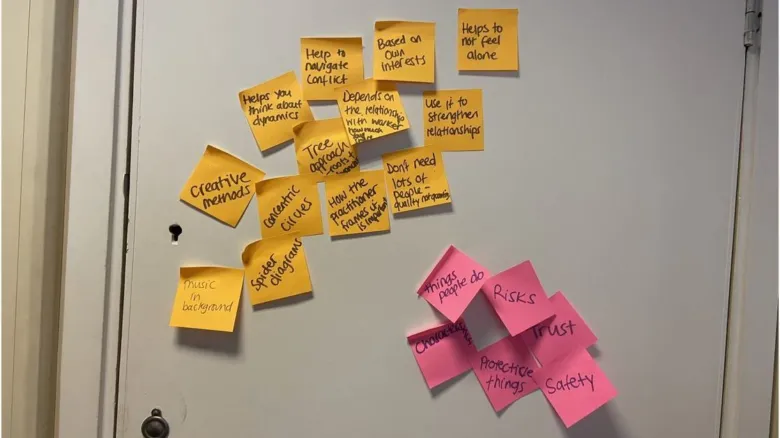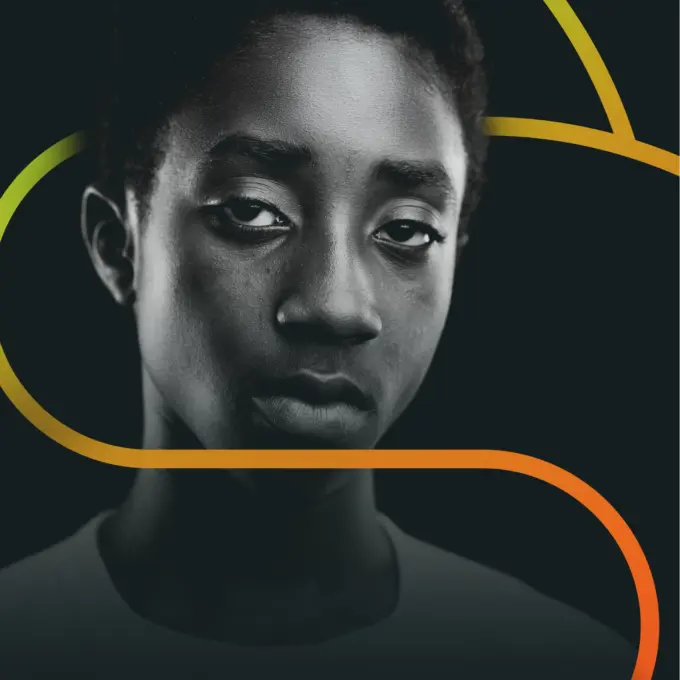
Utilising youth voice to develop our peers approach
We understand the important role young Londoner’s peers play within their lives. As part of our commitment to weave Contextual Safeguarding approaches throughout everything we do, we have brought in new practice development roles to look at safety within the wider context of young Londoners lives – this includes the places and spaces where they spend time, and their peer networks and friendship groups.
In 2022 we brought in a new role to develop an approach or framework to working with a young Londoner and their group of peers.
This works sits outside the conventional methods of working with peers, which traditionally takes place within educational settings and delivered through workshops. This model aims to work directly with a young Londoner and their group of friends – to increase safety within the whole group.
We know this is new territory, and therefore development of this new model has not been done in silo. We’ve worked closely with professionals and academics to understand the best approach. We also know that we aren’t the experts in young Londoner’s lives. So, we wanted to bring those experts into the conversation – young Londoners themselves.
Towards the end of 2022 we brought together the Safer London young Londoner VIPs and our team who our looking specifically at developing peer group interventions. The aim of the session was to build on previous discussions that took place at the VIP BIG Takeover week in October 2022. During the BIG Takeover week the VIPs contributed ideas on how we can carry out peer mapping exercises with young Londoners, as part of our wider approach around peers and safety.

Aidan Cover, Peer Group Worker – Development, Test and Delivery
We wanted to follow up on the young Londoners’ thoughts and ideas after the takeover week and keep their voice at the centre of the practice framework we are developing.
Through open discussion with our team and the VIPs we explored the following areas:
The positive power of peers
During the session the VIPs opened up about the positives of having a peer group. For example, having people to go out with and being taken out of their comfort zone can lead to personal growth, and how being able to confide in their peers can contribute to their safety.
Knowing what young Londoners see as the strengths of a peer group will help guide the peer group interventions that we are developing.
The length and timeframe of an intervention
The VIPs questioned the timeframe of the interventions. The group expressed that the number and length of sessions may need to be decided based on what the members of each peer group felt would work best.
Taking this on board, we have not set a standard timeframe for interventions and will discuss the length with each group we work with.
Who takes part in the intervention
During the session the VIPs stated that they would be willing to be part of an intervention to help a peer that was experiencing issues with their safety. One of the VIPs said they would rather be part of an intervention for someone else, than be the focus of the intervention and have their peer group help them. Another of the VIPs raised the issue of consent, and they expressed that they would want to have control over who was included as a member of their peer group for an intervention and what information was to be shared.
We want to make sure young Londoners hold power over their own lives. We will only carry out peer group work with their consent and form the groups based on who they agree should be involved, as well as safe group dynamics. Focusing on improving the safety of the peer group, rather than an individual alongside their peers, will hopefully address any hesitation young Londoners may have about being the centre of the intervention.
Getting young Londoners to take part and keeping them informed
In relation to approaching young Londoners to take part in peer group interventions, one of the VIPs suggested contacting them through a safeguarding officer at their school, although another of the VIPs responded that these officers are not always trusted by students. They also suggested that contacting them through their parents may not be the best way for many young Londoners, with them stating they would be happy to be contacted directly themselves.
These responses show how important it will be to ask young Londoners what the best way forward is for them at each step of the intervention.
The VIPs also pointed out that the best way to get the information to young Londoners will be different for different people. Therefore, we will look at possibly having the information in various forms of media, allowing young Londoners to access it in the way that best suits them. This could be in the form of digital flyers or short form video content.
Aidan Cover, Peer Group Worker – Development, Test and Delivery
We are very grateful to the VIPs for giving us their time and talents to contribute to the process of developing this brand-new practice that we are creating.
This is just the start of a long journey. Our next step is to take what we learnt from our discussions with the young Londoners to further shape the framework. We will then begin testing the new framework with the peer group of a young Londoner who is already working with Safer London. Using the feedback from group members and learning points from the intervention, we will make any adjustments that are needed and try the process again with another peer group.
From these test groups, we will continue to improve the framework, making it adaptable to the needs and dynamics of different young Londoners and their peer groups.
We know only by listening to young Londoners at every step will we get this approach to peer working and group safety right. So, we will continue to listen to their voices, and put them front, right and centre every step of the way.

Use your voice and create change
Become a Safer London VIP today!
CLICK HERE